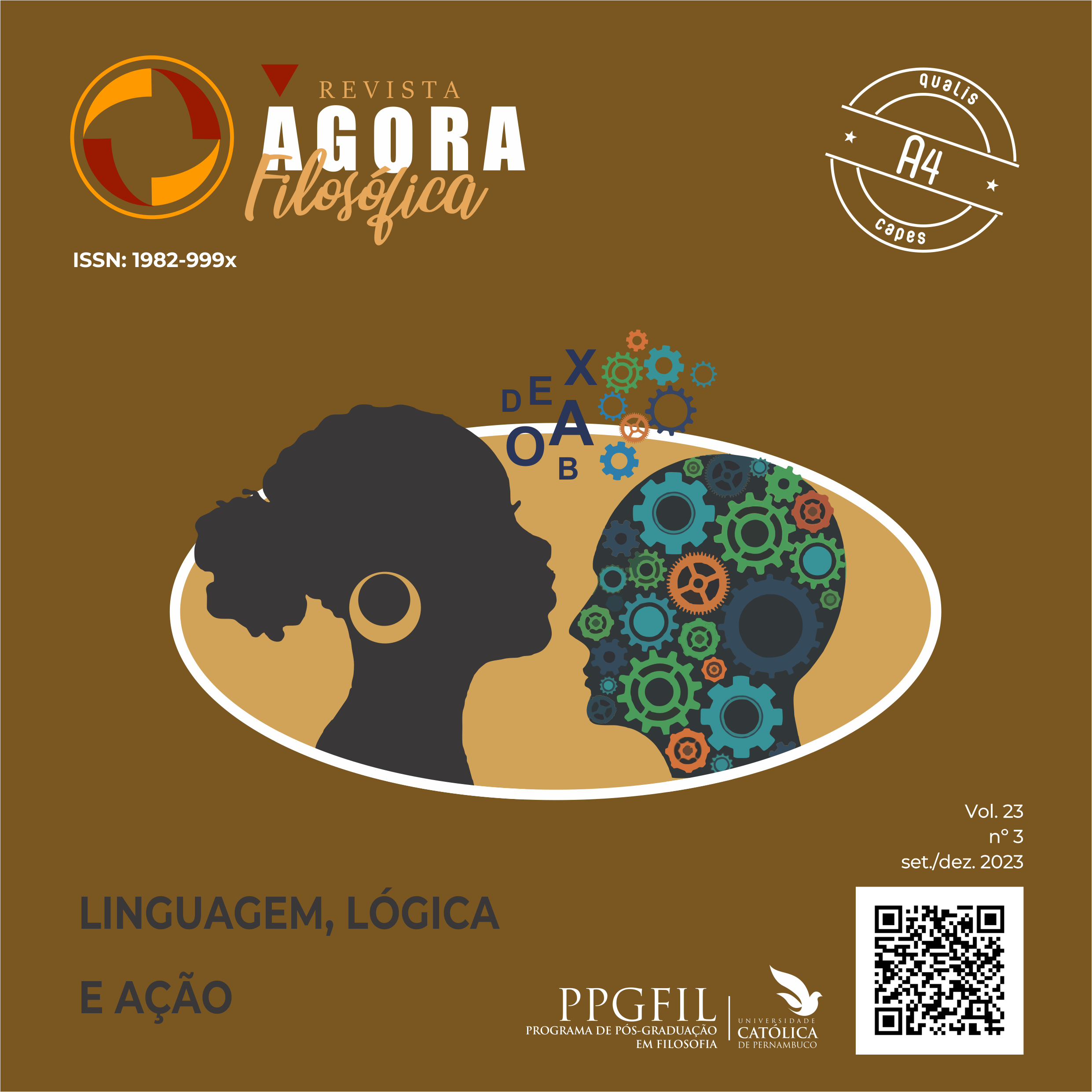Biopolitics of childhood and medicalization of education in times of pandemic (covid-19) in Alagoas
DOI:
https://doi.org/10.25247/P1982-999X.2024.v24n1.p159-178Keywords:
biopolitics, hygiene, medicalization of education, Covid-19 pandemicAbstract
Childhood has been the target of educational and social projects that are not exempt from political neutrality, constituting in them visions of the world, society, human being, especially of childhood. According to Foucault (2014), medicine was a biopolitical strategy that intervened in the lives of populations, making bodies and minds docile to ensure a useful, healthy and submissive workforce. We start from the assumption that, historically, childhood has been the yearning of political dreams, according to Kohan (2009) in which early childhood education was the target of investments for the formation of the docile subject. childhood in the context of the Covid-19 pandemic and its relationships with medical discourses and biopolitical practices in the school context of Alagoas. This work is the result of the thesis entitled Biopolitics, medicalization and the Covid-19 pandemic: knowledge, discourses and powers about childhood in Brazilian Education in the 20th and 21st centuries, in which we adopted bibliographical, documentary and case study research as a methodology. We found that bio-necropolitics translated into control of the body and life of the population in a pandemic context and generated policies to exclude students from the public network, constituting the continuation of the hygienist policy in the context of the 21st century.
Downloads
References
AGAMBEN, Giorgio. O uso dos Corpos. Tradução: Selvino J. Assmann, São Paulo: Boitempo, 2017.
ALAGOAS. Portaria SEDUC No 4.904/2020. Estabelece o regime especial de atividades escolares não presenciais nas Unidades de Ensino da Rede Pública Estadual de Alagoas, como parte das medidas preventivas à disseminação do Coronavírus. Diário Oficial de Alagoas. 19 jun. 2020.
ALAGOAS. PRAEP. Protocolo de Retorno às Atividades Escolares Presenciais. 2020. Disponível em:
http://www.educacao.al.gov.br/images/Protocolo_de_retorno_%C3%A0s_Atividades_Escolares_Presenciais_-_PRAEP.pdf. Acesso em: 15 nov. 2020.
ALMEIDA, S. Racismo estrutural. São Paulo: Pólen, 2019.
BOLSONARO, J. M. Pronunciamento em cadeia de rádio e televisão, março, 12, 2020a. Disponível em: https://www.gov.br/planalto/pt-br/acompanhe-o-planalto/pronunciamentos/pronunciamentos-do-presidente-da-republica/pronunciamento-do-senhor-presidente-da-republica-jair-bolsonaro-m-cadeia-de-radio-e-televisao-5. Acesso em: 25 mar 2020.
CAPONI, Sandra. Loucos e degenerados: uma genealogia da psiquiatria ampliada. Rio de Janeiro: Fiocruz, 2012.
CAVALCANTE, Ana Paula. Palestra: protocolos de biossegurança para a retomada das aulas. 2021. Disponível em: (360) Palestra - Protocolos de biossegurança para a retomada das aulas - YouTube. Acesso em: 9 fev. 2021.
ESPOSITO, Roberto. Bíos: biopolítica e filosofia. Tradução: M. Freitas da Costa. Lisboa: Edições 70, 2010.
FOUCAULT, Michel. Arqueologia do saber. Rio de Janeiro: Forense, 1987.
FOUCAULT, Michel. Em defesa da sociedade: curso no Collège de France. Tradução de Ermantina Galvão. São Paulo: Martins Fontes, 1999.
FOUCAULT, Michel. Os anormais: curso no Collége de France. São Paulo: Martins Fontes, 2001.
FOUCAULT, Michel. Em defesa da sociedade: curso no Collège de France (1975-1976). São Paulo: Martins Fontes, 2010.
FOUCAULT, Michel. Vigiar e punir: nascimento da prisão. 42. ed. Tradução: Raquel Ramalhete. Petrópolis: Vozes, 2014.
FREIRE, P. Pedagogia da Autonomia: saberes necessários à prática educativa. São Paulo: Paz e Terra, 1996.
KRENAK, Ailton. O amanhã não está à venda. São Paulo: Companhia das Letras, 2020.
MACEIÓ. Secretaria Municipal de Educação. Orientações Curriculares para a educação Infantil da Rede Municipal de Maceió. Maceió: Edufal, 2015.
MBEMBE, Achille. Necropolítica: biopoder, soberania, estado de exceção e política da morte. Arte & Ensaios, Revista do Ppgav/eba/ufrj, n. 32, dez./2016.
MBEMBE, Achille. Políticas da inimizade. Lisboa: Antígona, 2017.
MOYSÉS, Maria A. A.; COLLARES, Cecília A. L. Medicalização do comportamento e da aprendizagem: a nova face do obscurantismo. In:
VIÉGAS, Lygia de Souza et al. (org.). Medicalização da educação e da sociedade: ciência ou mito? Salvador: EdUFBA, 2014.
QUIJANO, Aníbal. Colonialidad del poder y clasificación social. In: CASTROGÓMEZ, S.; GROSFOGUEL, R. (orgs.). El giro decolonial. Reflexiones para una diversidad epistémica más allá del capitalismo global. Bogotá: Universidad Javeriana-Instituto Pensar, Universidad Central-IESCO, Siglo del Hombre Editores, 2007. p. 93-126
RAMOS, Arthur. A criança problema: a higiene mental na escola primária (1939a). Rio de Janeiro. Casa do Estudante do Brasil, 1954.
RAMOS, Arthur. Saúde do espírito: higiene mental (1939b). 7. ed. Rio de Janeiro: Serviço de Nacional de Educação Sanitária, 1958.
Downloads
Published
Issue
Section
License
Copyright (c) 2024 Fernanda Lays da Silva Santos, Walter Matias Lima

This work is licensed under a Creative Commons Attribution 4.0 International License.
You are free to:
- Share — copy and redistribute the material in any medium or format for any purpose, even commercially.
- Adapt — remix, transform, and build upon the material for any purpose, even commercially.
- The licensor cannot revoke these freedoms as long as you follow the license terms.
Under the following terms:
- Attribution — You must give appropriate credit , provide a link to the license, and indicate if changes were made . You may do so in any reasonable manner, but not in any way that suggests the licensor endorses you or your use.
- No additional restrictions — You may not apply legal terms or technological measures that legally restrict others from doing anything the license permits.
Notices:
You do not have to comply with the license for elements of the material in the public domain or where your use is permitted by an applicable exception or limitation .
No warranties are given. The license may not give you all of the permissions necessary for your intended use. For example, other rights such as publicity, privacy, or moral rights may limit how you use the material.
















